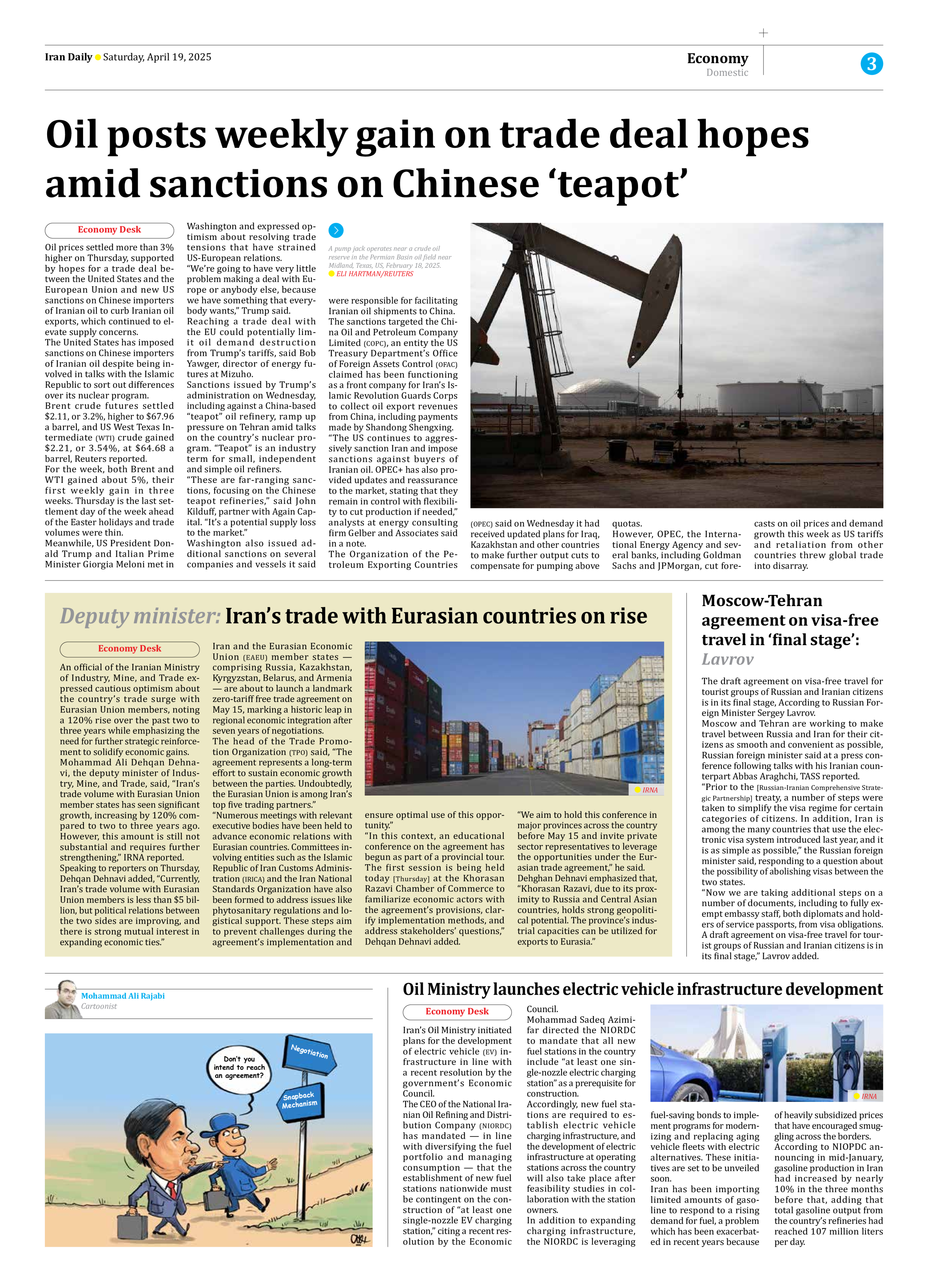
Oil posts weekly gain on trade deal hopes amid sanctions on Chinese ‘teapot’
Oil prices settled more than 3% higher on Thursday, supported by hopes for a trade deal between the United States and the European Union and new US sanctions on Chinese importers of Iranian oil to curb Iranian oil exports, which continued to elevate supply concerns.
The United States has imposed sanctions on Chinese importers of Iranian oil despite being involved in talks with the Islamic Republic to sort out differences over its nuclear program.
Brent crude futures settled $2.11, or 3.2%, higher to $67.96 a barrel, and US West Texas Intermediate (WTI) crude gained $2.21, or 3.54%, at $64.68 a barrel, Reuters reported.
For the week, both Brent and WTI gained about 5%, their first weekly gain in three weeks. Thursday is the last settlement day of the week ahead of the Easter holidays and trade volumes were thin.
Meanwhile, US President Donald Trump and Italian Prime Minister Giorgia Meloni met in Washington and expressed optimism about resolving trade tensions that have strained US-European relations.
“We’re going to have very little problem making a deal with Europe or anybody else, because we have something that everybody wants,” Trump said.
Reaching a trade deal with the EU could potentially limit oil demand destruction from Trump’s tariffs, said Bob Yawger, director of energy futures at Mizuho.
Sanctions issued by Trump’s administration on Wednesday, including against a China-based “teapot” oil refinery, ramp up pressure on Tehran amid talks on the country’s nuclear program. “Teapot” is an industry term for small, independent and simple oil refiners.
“These are far-ranging sanctions, focusing on the Chinese teapot refineries,” said John Kilduff, partner with Again Capital. “It’s a potential supply loss to the market.”
Washington also issued additional sanctions on several companies and vessels it said were responsible for facilitating Iranian oil shipments to China.
The sanctions targeted the China Oil and Petroleum Company Limited (COPC), an entity the US Treasury Department’s Office of Foreign Assets Control (OFAC) claimed has been functioning as a front company for Iran’s Islamic Revolution Guards Corps to collect oil export revenues from China, including payments made by Shandong Shengxing.
“The US continues to aggressively sanction Iran and impose sanctions against buyers of Iranian oil. OPEC+ has also provided updates and reassurance to the market, stating that they remain in control with flexibility to cut production if needed,” analysts at energy consulting firm Gelber and Associates said in a note.
The Organization of the Petroleum Exporting Countries (OPEC) said on Wednesday it had received updated plans for Iraq, Kazakhstan and other countries to make further output cuts to compensate for pumping above quotas.
However, OPEC, the International Energy Agency and several banks, including Goldman Sachs and JPMorgan, cut forecasts on oil prices and demand growth this week as US tariffs and retaliation from other countries threw global trade into disarray.







